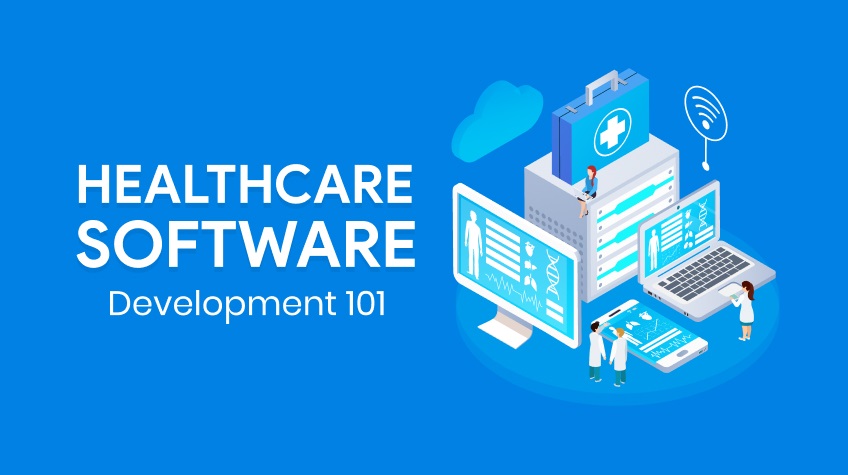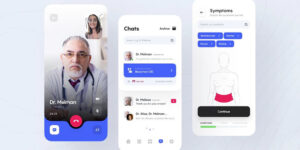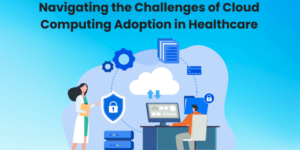
Healthcare software development provides an opportunity to improve patient care, health outcomes, and medical workflows.
Let’s take an in-depth look into the intricate world of healthcare software development.
From conception to deployment, we look at the steps of healthcare software development, the expenses, the importance of customisation and innovation, and the sector’s future.
What is Healthcare Software Development?
The primary purpose of healthcare software development is to facilitate medical interactions, improve patient care quality, and ensure patient privacy.
This task entails numerous procedures that must be meticulously carried out to guarantee that the final product fulfills all of the necessary standards and regulations. It is all about developing a user-friendly solution that can help with healthcare delivery while keeping patient data safe and secure.
First, there is the planning step, in which developers collect needs and create a strategy. This plan is then put into action during the design stage. Here, your software’s architecture is developed, establishing the framework for the following processes.
The next stage is implementation. This is where the actual coding occurs as developers bring the design to life by creating software that is consistent with the plan and design.
Before this product is released, it must be tested to confirm whether it works as planned or not and if any flaws are there, whether they have been resolved. Only then is the software ready for deployment, which involves putting it into operation in a real-world environment.
Services in Healthcare Software Development
Software development provides a variety of services. Each service has a unique contribution to making healthcare delivery better, improving patient outcomes and simplifying administrative procedures.
These services also includes Electronic Health Record (EHR) software, telemedicine apps and custom healthcare software created for your needs only.
- EHR software converts patient records into a digital format, making them easier to have access while protecting user privacy and security.
- Telehealth apps enable health care providers to monitor patient’s progress remotely and have virtual consultations as and when needed. So that ongoing care can be delivered even if the patient is not physically present.
- Custom healthcare software development solutions are appropriate in dealing with your specific difficulties as they are designed from the ground up to meet your specific requirements like streamlining administrative operations, increasing patient participation and improving support for clinical decisions.
It is also important to note that these services frequently require cutting-edge technologies such as artificial intelligence and cloud computing.
These technologies not only enhance the performance of healthcare applications but also increase their scalability and adaptability. Which ensures that they can keep up with the ever-changing healthcare market.
Healthcare Software Development Costs
Developing a software for the healthcare industry requires considerable investment. However, it also offers significant long-term rewards.
To give you a clearer understanding of where your investment goes, let’s break down the three main cost consuming components:
1. Technical Development
This is where a large portion of the budget goes into as it covers everything from system architecture to programming and then testing. Here you are mostly paying for the skills and effort of software developers and engineers.
2. Project Management
Project management manages all tasks and resources to ensure that the project works smoothly. It is also a critical component of healthcare software development that ensures everything stays on track and under budget.
3. Quality Assurance
QA guarantees that the software satisfies the necessary requirements and performs as required. It is a critical phase that cannot be neglected because it ensures the software’s reliability and efficiency before deployment.
The Role of Customization in Healthcare Software

Customization in healthcare software development is important because it allows solutions to be tailored made to specific organizational goals and challenges. These includes:
- You can develop custom software to fit the basic requirements of your patients. This could include customized health plans, simple access to medical records, direct communication with healthcare providers and more.
- You can develop your software to automate repetitive processes, freeing up time for your employees to focus on more vital work. Processes like auto appointment scheduling, appointment reminders and basic billing.
- Custom software helps with better data management. You can customize the system to capture, store and later analyze the data required, resulting in better decision-making and patient outcomes.
The Impact of Innovation in Patient Care
The influence of developments in healthcare software is significant. Here are three major ways in which innovation is transforming patient care:
- Advanced software technologies provides accurate diagnosis and accordingly specified treatment approaches. Artificial intelligence and machine learning algorithms can scan enormous volumes of medical data to detect trends and anticipate results that allows you early intervention and effective therapy.
- Healthcare software can enable patients to take an active role in their own care. They can schedule visits, access medical data, and receive personalized health suggestions.
- Healthcare personnel can share patient information seamlessly, improve workflows and coordinate their care more effectively. This decreases the likelihood of medical errors and guarantees that patients receive prompt and adequate care.
Adopting these improvements in healthcare software development can result in a transformed healthcare system that is patient-centered, efficient, and effective. As you embark on your healthcare journey, keep in mind that these tools are intended to improve your experience.
The Future of Healthcare Software Development
We are seeing significant advancements in healthcare software development as a result of cutting-edge technologies such as Artificial Intelligence (AI) and the Internet of Things. They are making healthcare more smooth, efficient, and individualized.
Artificial intelligence is a significant deal in healthcare. It simplifies many activities by automating them, helps with challenging diagnosis, and improves patient care pathways.
Meanwhile, IoT is all about monitoring patients in real time and accumulating information. It is beneficial to patients since it improves their care, and it also helps hospitals and clinics operate more efficiently.
The COVID-19 epidemic has demonstrated how vital telemedicine can be. It makes healthcare more accessible to everyone and helps reduce disease spread by allowing patients to get check-ups from home.
Big Data is increasingly being used in the creation of healthcare applications. It has the potential to significantly improve healthcare decision-making, predict disease outbreaks, and personalize patient treatment.
However, with all of these new tools, we must also consider the concerns, such as securing patients’ private information.
That is why it is critical to stay current with these changes, be prepared to adapt, and collaborate with technology specialists. This way, we can make the best use of these advancements.






